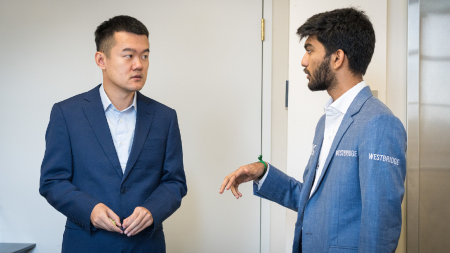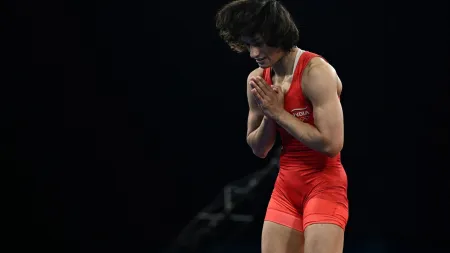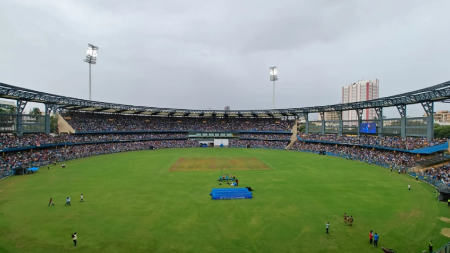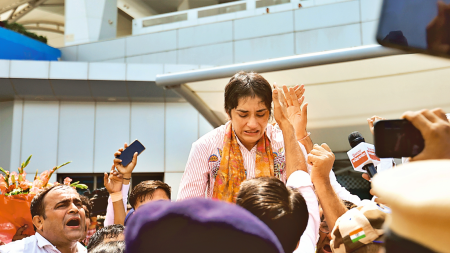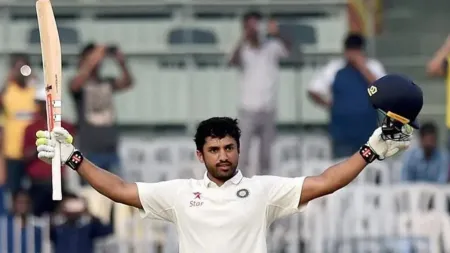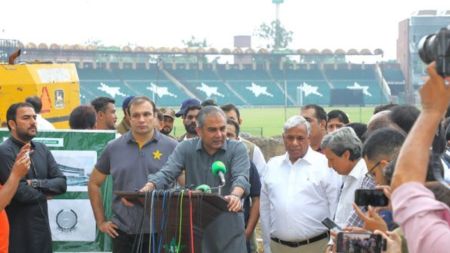Interview series with Neeraj Chopra, other top athletes, taking sports ‘a little easier’: What long jumper Sreeshankar Murali did on missing Olympics due to injury
Long jumper Sreeshankar Murali, who had to withdraw from the Olympics due to a knee injury, still kept a close eye on the action unfolding at Paris. As an expert commentator on India’s official broadcasters for the Games, the Commonwealth and Asian Games silver medallist found another perspective on the track and field events.
“I thoroughly enjoyed my stint as a commentator and got to learn about different sports. Although I had great fun while doing commentary for the long jump finals, I can’t deny I was feeling a little bad that I wasn’t on the field. The way my practice was going this season, I had a very strong chance of finishing on the podium,” Sreeshankar tells The Indian Express.

The knee injury also gave Sreeshankar time to reassess his goals and take sports “a little easier”. Earlier, he was fully consumed in training, workouts and competitions, turning a blind eye on life beyond sports. This injury-induced break helped him realise that the approach could lead to burnout.
It also gave him an opportunity to produce an interview series ahead of the Games where he managed to get Neeraj Chopra, Hamish Kerr (Paris high jump gold medallist) and friend Miltiadis Tentoglou (long jump gold medallist).
“I made this video series for the Indian audience. I wanted to get these international champions to tell us how they train. Our Indian athletes believe that training as hard as you can is the best approach. But you will see these international athletes talking about how they train just five days a week and not more than three hours a day. It’s something our young athletes can watch and learn from,” he says.
The injury came just months before the Olympics during a light training session at Sreesankar’s hometown of Palakkad, Kerala, shattering him emotionally. What made things worse for the athlete was the fact his family had come to the stadium to watch him train. No one fathomed that Sreeshankar, who was in excellent form until then, would leave the stadium with a ruptured tendon and a broken spirit.
“It wasn’t even a full motion jump but the moment I landed, I heard a pop. I immediately knew what it meant. I had to be lifted off the ground. The next few days I just spent weeping. When doctors took a look at my scans, they said such injuries only happen in car crashes. I still don’t know how it happened,” Sreeshankar says.
The athlete knew he did not have much time and needed surgery at the earliest to address the “career-threatening injury”. After consulting with Dr Sameul Pullinger, head of sports science at JSW’s Inspire Institute of Sports (IIS), Sreeshankar boarded a flight to Doha to get his knee operated on at Aspetar Hospital, known for treating top football stars like Lionel Messi and Neymar.
The long road back
Post surgery in late April, Sreeshankar decided to fly down directly to Bellary to begin his rehab program instead of heading home.
“His rehabilitation isn’t a one-man job. A huge team is involved. The medical department is always in contact, alongside the nutrition department that assists him with any additional supplementation needs for his injury,” says Pullinger.
Sreeshankar was in constant touch with his family, giving them daily updates during this period but didn’t really understand the toll the injury took on them, especially his dad, until he visited home.
“More than the physical strain, it was an emotional toll on my family. After returning home two months after my surgery in Doha and initial rehab, I noticed nothing had changed. All the stuff at home hadn’t moved an inch. The resistance band I was using on the day of injury was still wrapped around the railing,” Sreeshankar says.
“I didn’t have time to sit in despair for too long. My family was quite upset, and I needed to reassure them. My father was deeply involved in every step of my journey. It was hard for him initially, but the support he received from various quarters was very helpful,” he says.
During that phase, Sreeshankar received calls from top athletes on the circuit, including Chopra, but it was one special call from an athlete friend in Delhi that turned the tide for him.
Asian and Commonwealth Games medallist Tejaswin Shankar’s short, but effective, pep talk was enough to lift Sree’s spirits.
“Tejaswin was actually surprised that I picked the call. He said, ‘Brother, if there is anyone who can make a comeback from here, it’s you’. The belief he had in me renewed my faith,” says Sreeshankar.
He has no qualms in admitting that he needed professional help to take care of his mental health. Sessions with sports psychologist Maithili Bhuptani, who is part of the national camp, helped the youngster and his father immensely.
“Dad was 100 times more involved than I was. He was soaking in the entire process with training, recovery, rest, planning. It was so hard for him initially. A lot of athletes, friends spoke to him, as did my sports psychologist,” recalls Sreeshankar.
Sreeshankar has already been cleared to do light running and weight training, though the jump sessions have to wait for now. The Kerala athlete is eyeing a return to competition by June next year. “I will return to action in a domestic meet and then travel to Europe to get some good 7.90m jumps that will help me earn ranking points for the Tokyo World Championships,” he says.
Disclaimer: The copyright of this article belongs to the original author. Reposting this article is solely for the purpose of information dissemination and does not constitute any investment advice. If there is any infringement, please contact us immediately. We will make corrections or deletions as necessary. Thank you.
